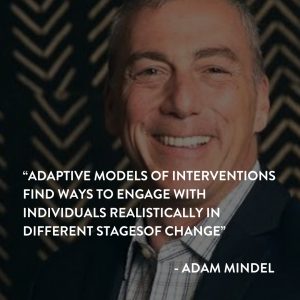Donald Trump & Addiction
What to expect in this episode:
- Donald Trump appears to suffer from Attention Deficit Disorder
- He has likely been prescribed methylphenidate, for decades
- Irritability, lack of sleep are side effects, so he likely has been taking benzos like Xanax to sleep, effectively putting him on a pharmaceutical cocktail long-term, locking in aspects of his personality as an addict would.
Donald Trump & Addiction
I have an interesting and controversial theory, I have no facts, this is just, shooting the breeze – I’m sure I’ll hear about it…
I look at Donald Trump, I look at his character structure, the little bit that we know about his history, and it’s clear that he suffers from some kind of attention deficit disorder.
He seems impulsive, not always so contemplative and thoughtful, and I imagine as a kid he was a lot to handle.
He also comes from a wealthy background, I’m assuming his parents probably had access to private doctors, psychiatrist, etc.
At some point in his development, his parents or whoever was in charge went, “this kid is pretty wild” and they put him on some kind of methylphenidate.
Something like a Ritalin or Adderall or something like that, and they used that to help him narrow his focus and be able to accomplish the task in front of him, school, etc.
I imagine him on this methylphenidate for 10, 20, 30 years – what happens if you consume methylphenidate, which is related to the class of drug that’s methamphetamine or speed, a stimulant, is… you begin to have side effects.
The side effects are irritation and lack of sleep, then it stops working, and you start to feel your focus starts to slip…
Usually what people do at that point, if you’ve been on a methylphenidate for a long time, is you’ll take a benzodiazepine or sleeping pills and then you’ll begin to balance it out with different kinds of medication,
So my guess, when you look at Donald Trump, is that he’s been on a pharmaceutical cocktail for 40 years.
The reason why I think that is, most human beings in an interaction with the world would grow past some of the immature characteristics that we see in him.
The only way that somebody gets locked in that kind of way is either through extreme avoidance of yourself, which is hard to do, or through some kind of addiction.
He also doesn’t drink and doesn’t get high. His brother was an addict and so he doesn’t medicate with those things.
So my guess is he got hooked on stimulants and then other drugs like benzos like Xanax and things like that to calm his nerves from the stimulants and it’s been locked in place for decades.
I think one day we’ll find that out.
Schedule a 30-minute consultation with Yeshaia
Schedule Free ConsultationSchedule Free Consultation




